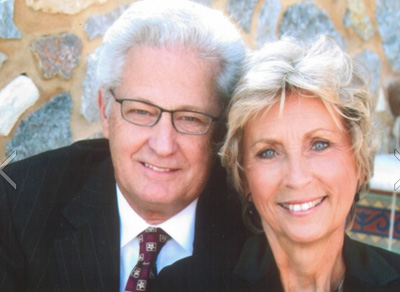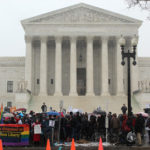WASHINGTON (ABP)—The Supreme Court agreed Nov. 26 to accept cases challenging mandated contraception coverage in the health care reform law known as Obamacare.
Justices announced they would hear cases with plaintiffs including Hobby Lobby, the Oklahoma-based arts-and-crafts retailer whose owners object to certain forms of birth control based on their Southern Baptist beliefs.
 Hobby Lobby founder David Green and his wife, Barbara.Hobby Lobby founder David Green, a member of Council Road Baptist Church in Bethany, Okla., and members of his family say emergency contraception that terminates a pregnancy after fertilization occurs runs contrary to the Southern Baptist Convention’s official doctrine affirming the “sanctity of all human life from conception to natural death.”
Hobby Lobby founder David Green and his wife, Barbara.Hobby Lobby founder David Green, a member of Council Road Baptist Church in Bethany, Okla., and members of his family say emergency contraception that terminates a pregnancy after fertilization occurs runs contrary to the Southern Baptist Convention’s official doctrine affirming the “sanctity of all human life from conception to natural death.”
“This is a major step for the Greens and their family businesses in an important fight for Americans’ religious liberty,” said Kyle Duncan, general counsel of the Becket Fund for Religious Liberty and lead lawyer for Hobby Lobby. “We are hopeful that the Supreme Court will clarify once and for all that religious freedom in our country should be protected for family business owners like the Greens.”
Mandate ‘Lawful and essential’
A White House spokesman said the health care law covers vital preventive care for women, such as cancer screenings and birth control, and the administration believes the requirement is “lawful and essential to women’s health.”
“As a general matter, our policy is designed to ensure that health care decisions are made between a woman and her doctor,” according to a statement from the White House. “The president believes that no one, including the government or for-profit corporations, should be able to dictate those decisions to women.”
In accepting the Hobby Lobby case, the high court will settle the legal question of whether the Religious Freedom Restoration Act, a law passed 20 years ago to make it harder for the government to burden religious exercise, applies only to people or to corporations as well. Lower courts have ruled both ways.
Other suits
Other lawsuits, including one by GuideStone Financial Resources of the Southern Baptist Convention, challenge implementation of the Affordable Care Act, claiming rules set by the Department of Health and Human Services too narrowly define “religious employers,” such as local congregations, that can opt out of the mandate for moral reasons.
“The Supreme Court needs to make it clear that religious freedom is not a battering ram to use against individual rights,” said Barry Lynn, executive director of Americans United for Separation of Church and State.
“The question before the court is simple,” said Lynn, an ordained United Church of Christ minister. “Does the owner of a secular corporation have the right to impose his religious views onto his employees? And the answer is equally simple: No.”
Observers expect the Supreme Court to hear oral arguments in March and have a ruling by late June.














We seek to connect God’s story and God’s people around the world. To learn more about God’s story, click here.
Send comments and feedback to Eric Black, our editor. For comments to be published, please specify “letter to the editor.” Maximum length for publication is 300 words.